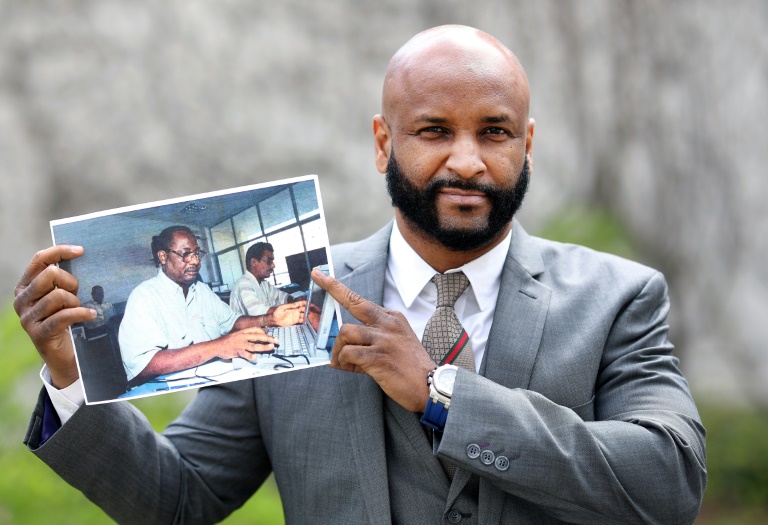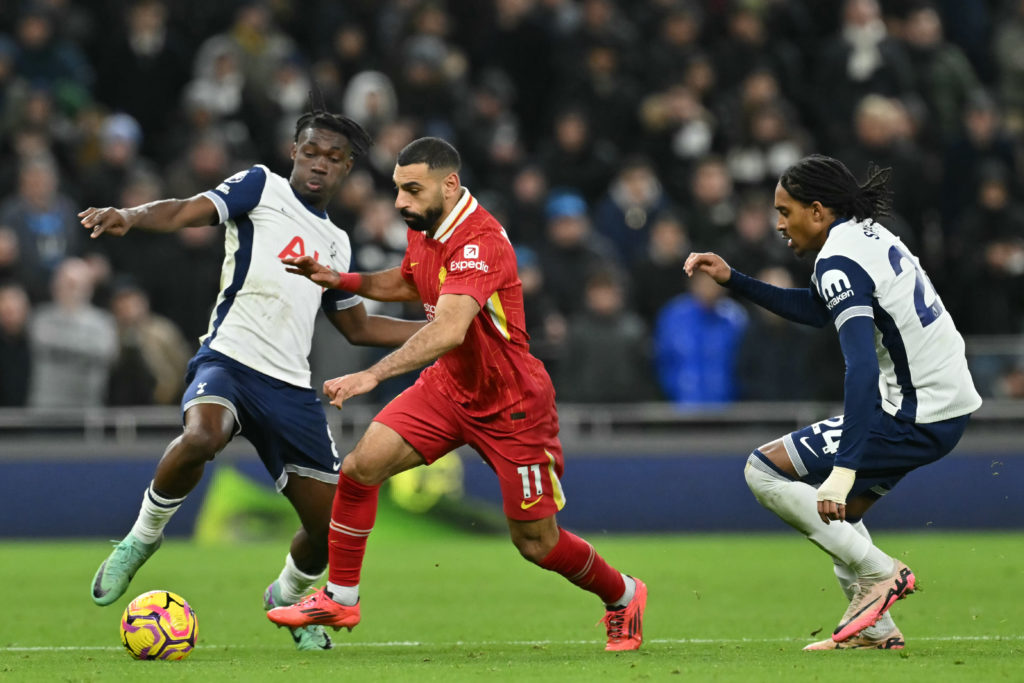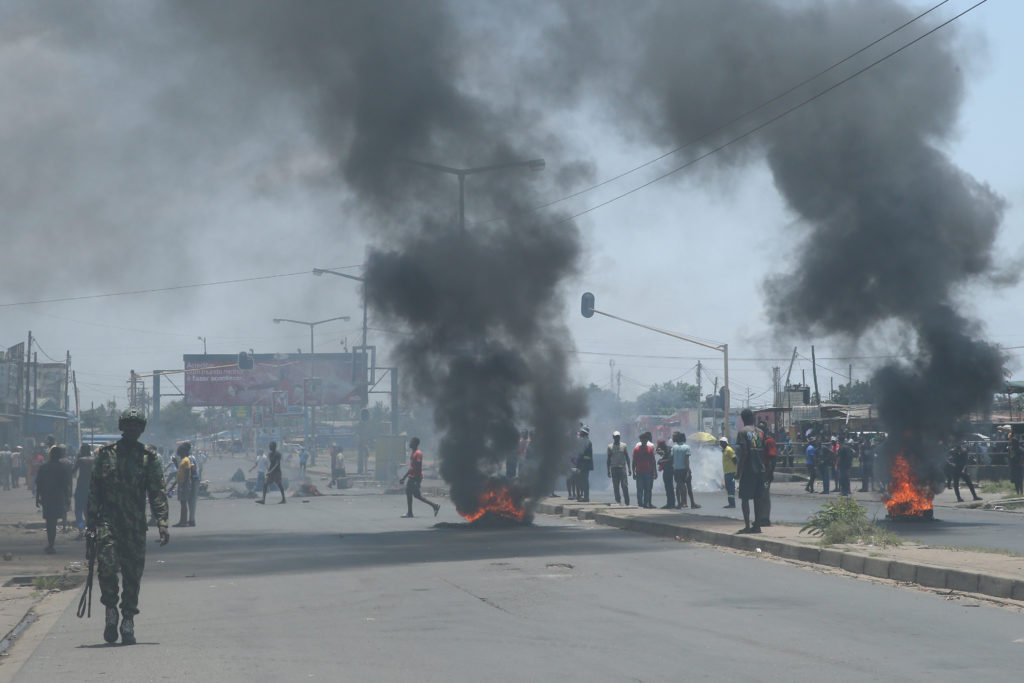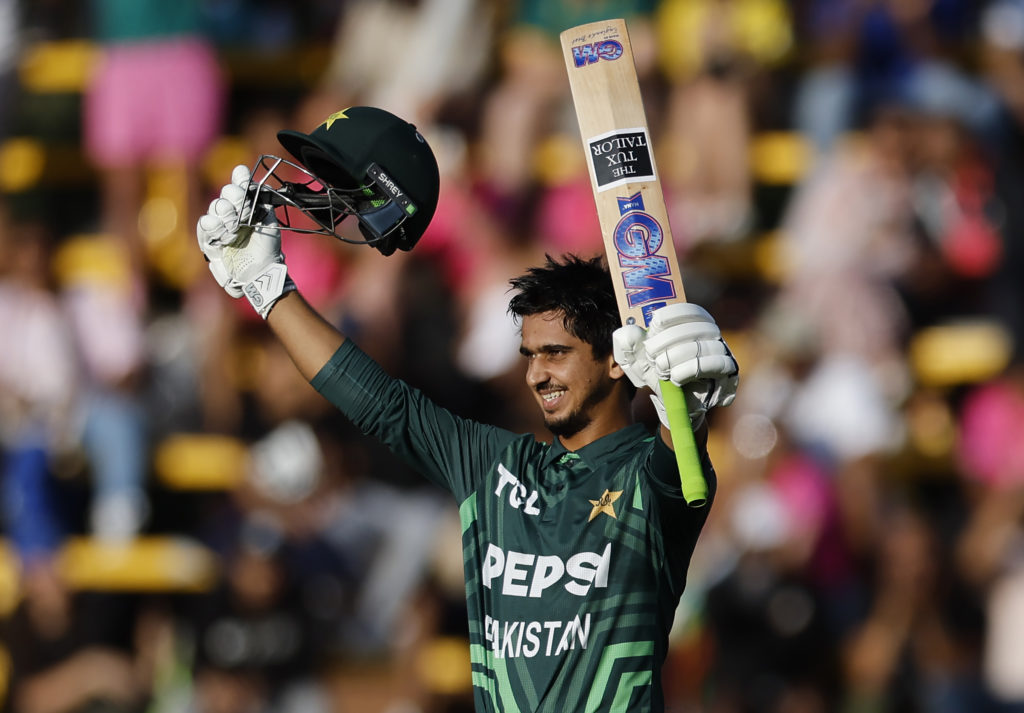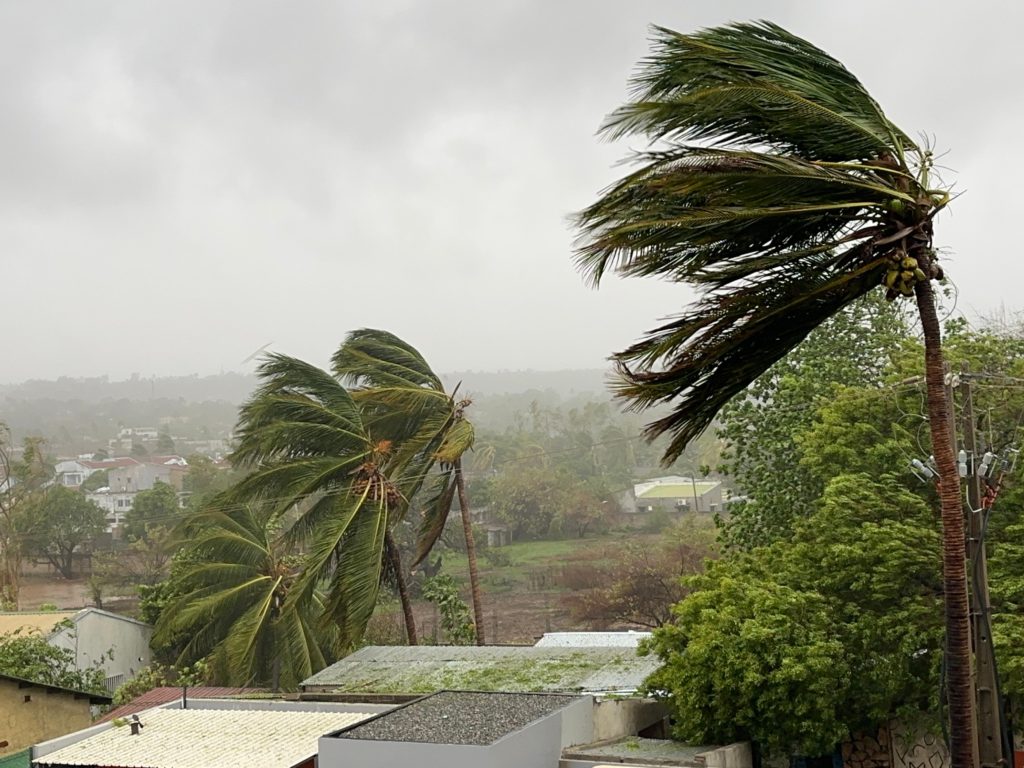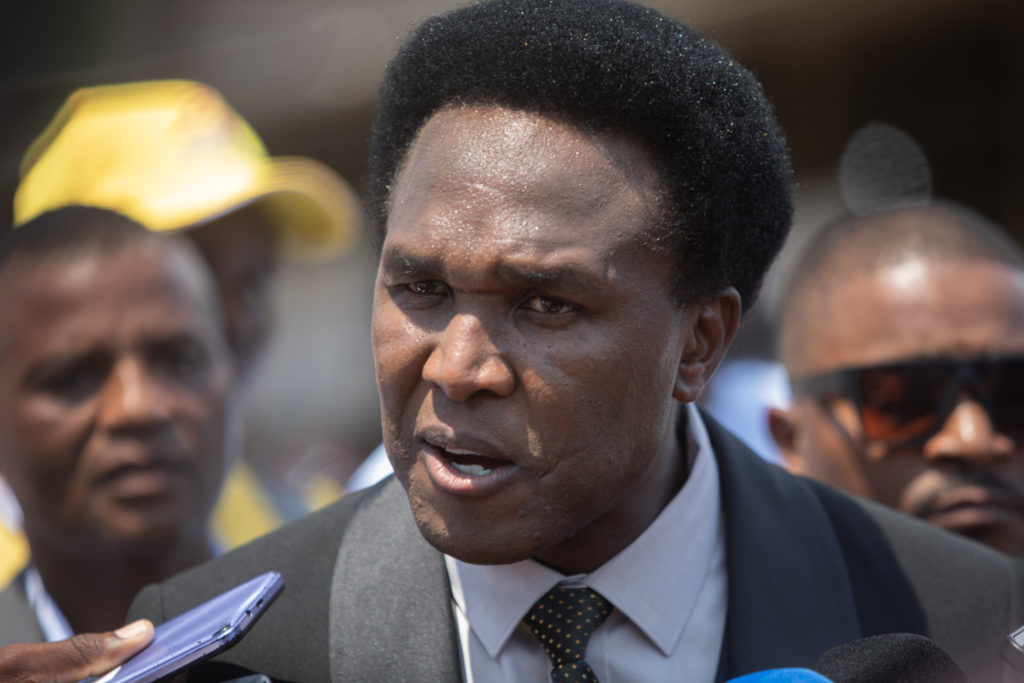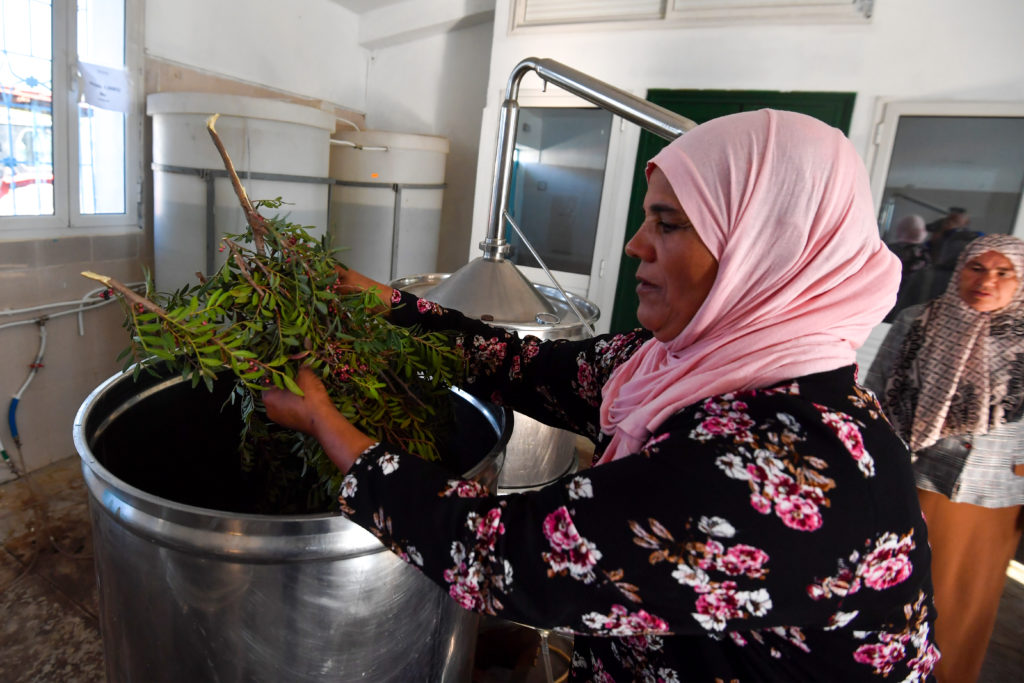Baba Hydara, son of murdered Gambian journalist Deyda Hydara, with a photo of his father
A Gambian man on trial in Germany accused of belonging to a death squad that assassinated opponents of former dictator Yahya Jammeh, including an AFP journalist, on Thursday denied the charges.
“I did not participate in these acts,” the defendant Bai Lowe’s lawyer told the court in the northern town of Celle, reading a statement by the accused.
Lowe, 47, is charged with crimes against humanity, murder and attempted murder, including the 2004 killing of AFP correspondent Deyda Hydara.
He entered the courtroom wearing a black cap, which he later removed to reveal a shaved head, and listened intently to the English translation of the declaration read out in German.
In it, Lowe said he had merely repeated in the past what other people had told him about the facts of the case.
Explaining previous statements in media interviews that appeared to incriminate him, Lowe told the court that he had intended to demonstrate to his fellow Gambians how cruel Jammeh’s regime was.
Lowe, who went on trial in April, is accused of involvement in two murders and one attempted murder while working as a driver for the hit squad known as the Junglers between December 2003 and December 2006.
It is one of the first cases worldwide hearing accusations of serious human rights violations during the Jammeh era in Gambia, a former British colony.
– ‘King for life’ –
The proceedings are being held in Germany on the basis of universal jurisdiction, which allows a foreign country to prosecute crimes against humanity, war crimes and genocide, regardless of where they were committed.
Hydara was an editor and co-founder of the independent daily The Point and a correspondent for AFP for more than 30 years.
The father-of-four also worked as a Gambia correspondent for the Reporters Without Borders (RSF) campaign group.
He was gunned down in his car on the outskirts of Banjul on December 16, 2004.
Lowe is accused of having helped stop Hydara’s car before driving one of the killers in his own vehicle.
He told the court he had accepted an interview with a US-based Gambian radio station because the reporter had told him Jammeh intended to name himself “king for life” after the 2016 election, ushering in a dictatorship.
In the more than hour-long interview, which is still online, Lowe details his involvement in the crimes for which he is standing trial.
But on Thursday, he declared that the remarks were solely intended to inform the Gambian people about crimes committed in Jammeh’s name so they would not vote for him.
In a statement sent to AFP, Hydara’s son Baba said he rejected Lowe’s account to the judges.
“As a victim and a plaintiff in this case I feel disappointed, insulted and cheated by (this) statement that betrays common sense,” he said.
– ‘Not credible’ –
Hydara’s lawyer, Patrick Kroker, added that “the statement of the accused seems made up and incomplete. Moreover, it has already been contradicted on several occasions by the evidence collected so far”.
“It’s a step backwards in the search for the truth for the victims of Yahya Jammeh,” Kroker told AFP.
“We assume that the court will not give any credence to this statement.”
Attorney Ida Jagne, who was in Hydara’s car when he was killed, also dismissed Lowe’s testimony.
“The statement is extremely not credible… because the accounts he gave in interviews were very detailed: who participated, what happened,” Jagne’s own lawyer Peer Stolle told reporters outside the courtroom.
Lowe arrived in Europe via Senegal in December 2012, saying he was seeking asylum as a political refugee who feared for his life under Jammeh.
He was detained on the charges in Germany in March 2021.
Jammeh ruled Gambia with an iron fist for 22 years but fled the country in January 2017 after losing a presidential election to relative unknown Adama Barrow.
He refused to acknowledge the results but was forced out by a popular uprising and fled to Equatorial Guinea.
Five former members of the intelligence service were sentenced to death by a Gambian court only in July this year for the murder of a political activist during Jammeh’s rule.

